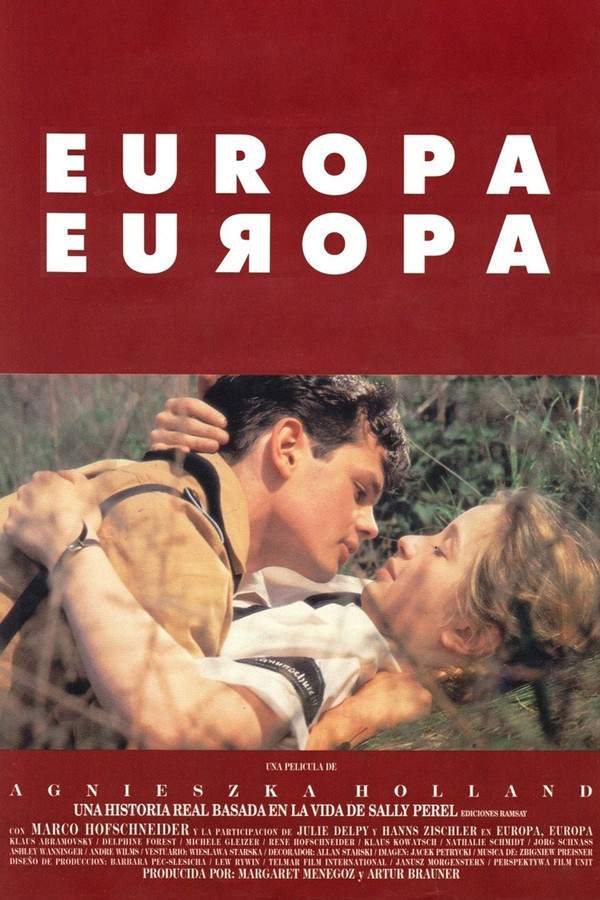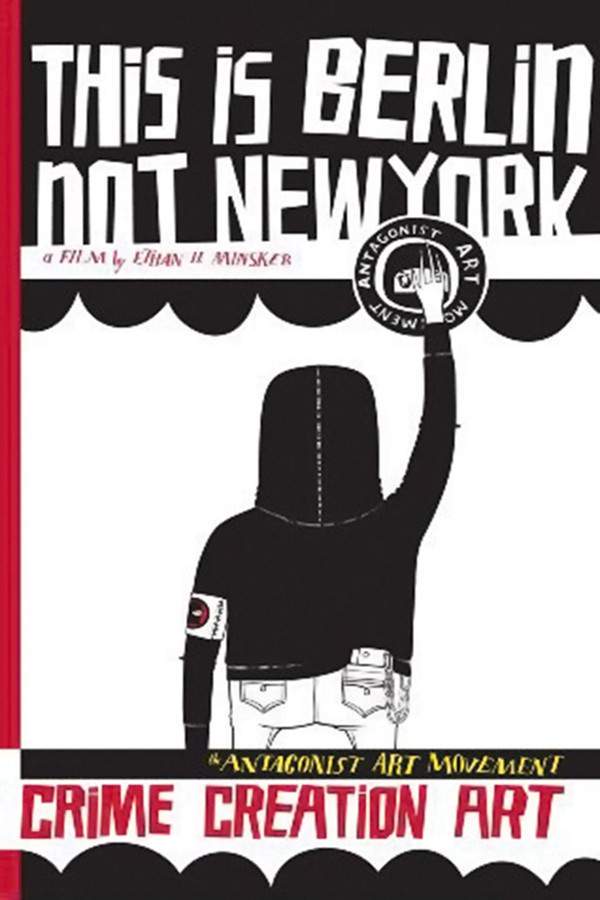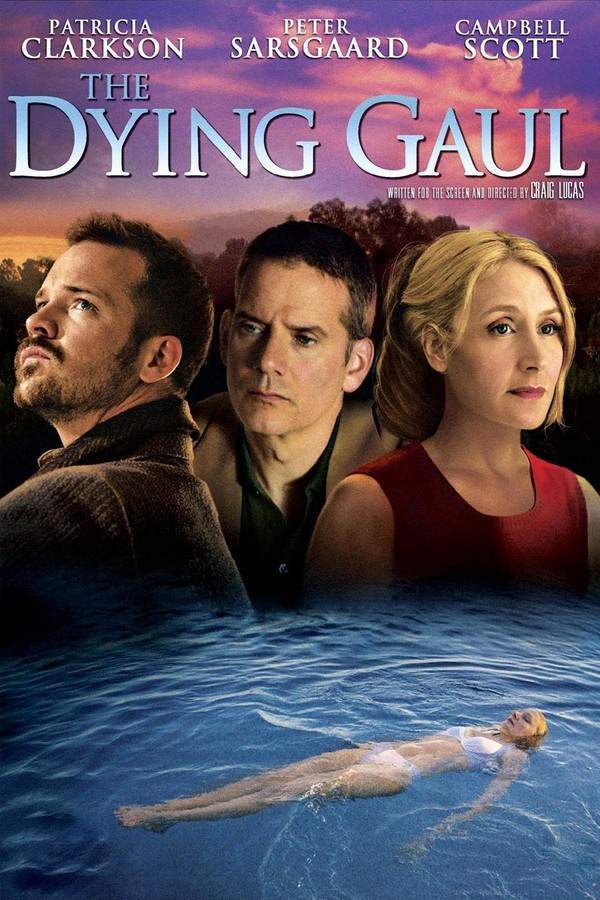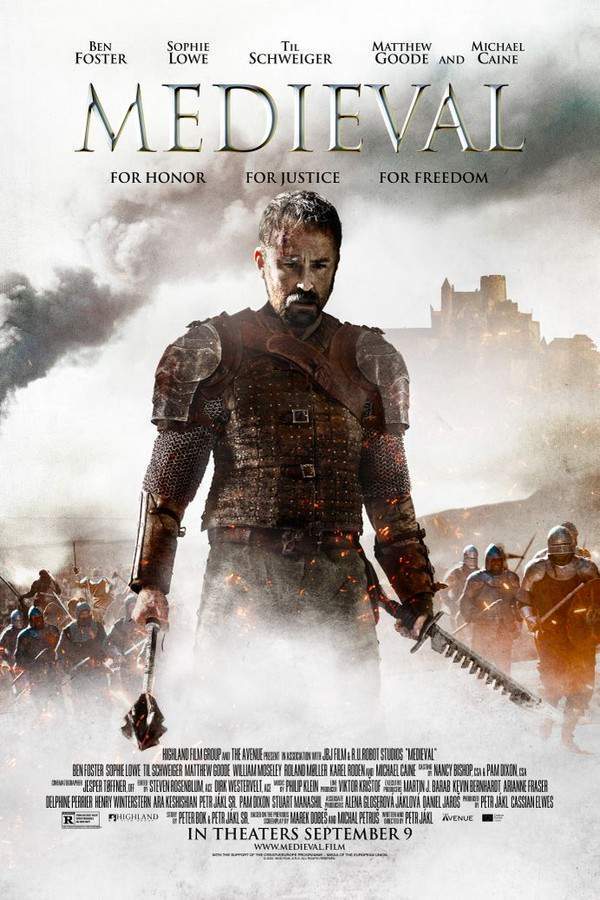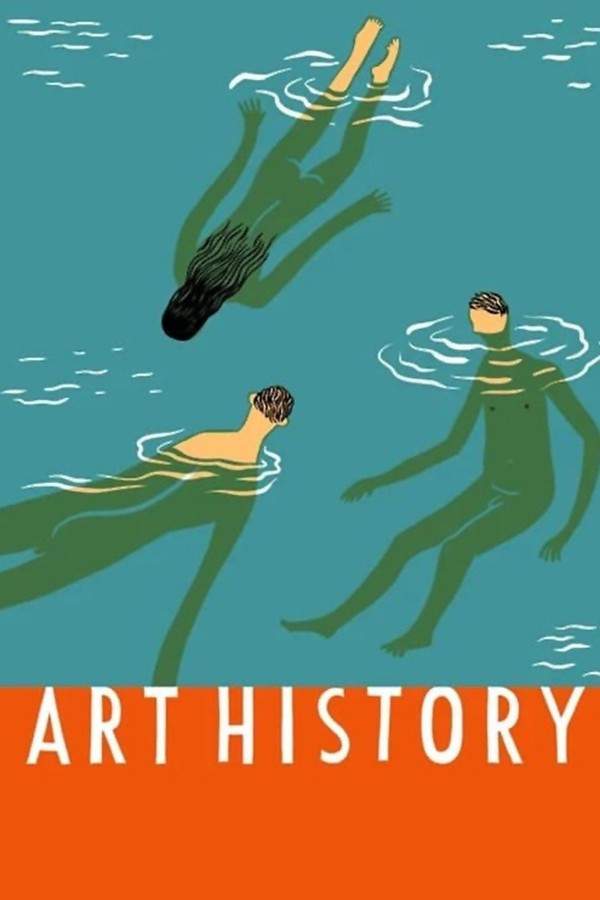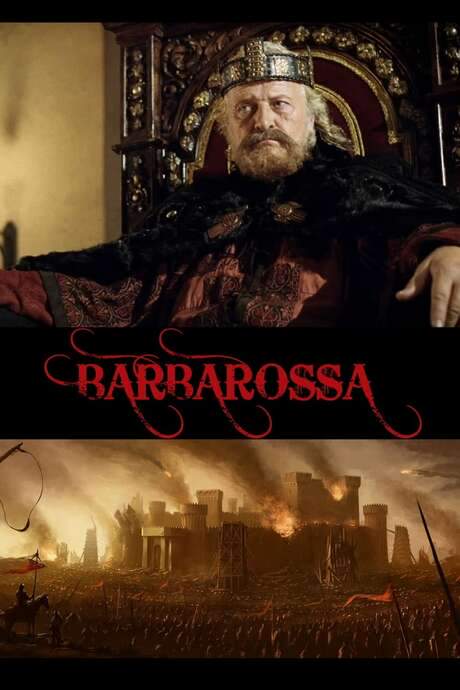I Do Not Care If We Go Down in History as Barbarians 2019

A young artist searching for inspiration finds himself drawn into a tumultuous period marked by conflict and moral ambiguity. His journey becomes a profound exploration of the human condition amidst the brutality of war, revealing the difficult choices and consequences faced by those caught in extraordinary circumstances. The story delves into the complexities of history and the impact of conflict on individuals and societies.
Does I Do Not Care If We Go Down in History as Barbarians have end credit scenes?
No!
I Do Not Care If We Go Down in History as Barbarians does not have end credit scenes. You can leave when the credits roll.
Meet the Full Cast and Actors of I Do Not Care If We Go Down in History as Barbarians
Explore the complete cast of I Do Not Care If We Go Down in History as Barbarians, including both lead and supporting actors. Learn who plays each character, discover their past roles and achievements, and find out what makes this ensemble cast stand out in the world of film and television.
External Links and Streaming Options
Discover where to watch I Do Not Care If We Go Down in History as Barbarians online, including streaming platforms, rental options, and official sources. Compare reviews, ratings, and in-depth movie information across sites like IMDb, TMDb, Wikipedia or Rotten Tomatoes.
Ratings and Reviews for I Do Not Care If We Go Down in History as Barbarians
See how I Do Not Care If We Go Down in History as Barbarians is rated across major platforms like IMDb, Metacritic, and TMDb. Compare audience scores and critic reviews to understand where I Do Not Care If We Go Down in History as Barbarians stands among top-rated movies in its genre.

The Movie Echo Score
The film presents a formally ambitious and thematically provocative experience that stimulates reflection on national memory. Its confident direction and inventive formal constructs earn praise for visual and intellectual daring, while its essayistic narrative sometimes undercuts dramatic urgency. Character moments offer skillful performances yet remain emotionally distant, and pacing is measured rather than kinetic. Ultimately, this is a challenging work that rewards viewers seeking rigorous analysis, even as its emotional resonance is uneven.
The Movie Echo Score Breakdown for I Do Not Care If We Go Down in History as Barbarians

Art & Craft
Art and craft are a standout strength. Direction demonstrates confident rule-breaking, cinematography complements the dialectical tone with compelling compositions, and production design effectively contextualizes modern and historical settings. Editing maintains a measured rhythm, though occasional discursions reduce dynamic energy. Overall, the film’s formal construction is both ambitious and assuredly executed, delivering a visually coherent and intellectually rigorous presentation.

Character & Emotion
Character and emotion reveal mixed results. Acting is consistently assured, with the lead sustaining a rousingly lewd humor and compelling presence. However, deeper emotional resonance remains limited, and character interactions occasionally feel more argumentative than heartfelt. Chemistry fluctuates across the ensemble, hindering sustained engagement. In sum, performances exhibit technical skill but offer only sporadic emotional connection.

Story & Flow
Synthesis of narrative flow and thematic originality yields varied engagement. The story’s probing of national amnesia and moral accountability is conceptually compelling and original. Pacing, however, leans toward the discursive, delaying dramatic payoff until the final sequences. Plot coherence balances essayistic fragments with overarching argumentation, sometimes at the expense of momentum. Overall, the narrative is thought-provoking but uneven in its dramatic propulsion.

Sensory Experience
In terms of sensory experience, the film excels in visual cohesion and sound design. The cinematography employs a restrained palette that underscores historical resonance, while production design fluidly alternates between past and present milieus. The score and soundtrack subtly reinforce thematic tension without overpowering dialogue. Sound mixing is clear and balanced. Overall, the audio-visual presentation is refined and thematically attuned.

Rewatch Factor
When considering rewatch value, the film presents intellectual depth that benefits subsequent viewings. Nuanced thematic layers and incisive meta-commentary invite reflection upon multiple viewings. Nonetheless, its discursive structure and deliberate pacing may challenge casual audiences on repeat. While the richness of ideas sustains interest, emotional distance may limit broader rewatch appeal. Overall, the film offers meaningful rewards for attentive repeat viewings.

81
Metascore
6.6
User Score


92%
TOMATOMETER

59%
User Score

7.2 /10
IMDb Rating

70
%
User Score

3.9
From 42 fan ratings
Take the Ultimate I Do Not Care If We Go Down in History as Barbarians Movie Quiz
Challenge your knowledge of I Do Not Care If We Go Down in History as Barbarians with this fun and interactive movie quiz. Test yourself on key plot points, iconic characters, hidden details, and memorable moments to see how well you really know the film.
Barbarians and Legacies Quiz: Test your knowledge on the historical and personal themes explored in 'I Do Not Care If We Go Down in History as Barbarians'.
What year does the film's reenactment take place?
1939
1941
1945
1950
Show hint
Full Plot Summary and Ending Explained for I Do Not Care If We Go Down in History as Barbarians
Read the complete plot summary of I Do Not Care If We Go Down in History as Barbarians, including all major events, twists, and the full ending explained in detail. Explore key characters, themes, hidden meanings, and everything you need to understand the story from beginning to end.
In the heart of Bucharest, a talented young film director named Mariana Marin is immersed in the rehearsal of a powerful dramatic reenactment that delves into a dark chapter of Romania’s past. This period dates back to 1941 when the fascist regime led by Marshal Antonescu allied with Hitler to invade the Soviet Union. Their justification for this invasion stemmed from two main goals: the first being the reclamation of territories taken by Stalin in 1940, which were integrated into the Soviet republics of Moldavia and Ukraine. The second objective was far more sinister, aiming to cleanse these lands—as well as to pursue further territorial aspirations in Ukraine, particularly Odesa—of Jews and Roma.
However, Mariana’s journey is not solely focused on her film; her personal life is fraught with complications as she discovers she is pregnant with the child of her married lover. Professionally, she faces mounting pressure as her ambitious plans catch the attention of the ministry funding her project. A representative, although acknowledging that her screenplay remains historically precise, urges her to soften the narrative and mitigate the gravity of the regime’s horrendous actions. He warns her that should she stand her ground, the municipality may very well prohibit the enactment altogether. After a prolonged debate, Mariana finds herself conceding to a few alterations while also accepting a date with the representative.
The day of the event unfolds successfully, yet the audience’s response, as well as that of the volunteer participants, reveals a stark dichotomy. A notable portion of the Romanian populace finds it challenging to embrace the documented truths of their nation’s role in the deportations and mass executions. This complex interplay of historical acknowledgment and personal dilemmas intricately weaves together the fabric of Mariana’s story, raising profound questions about memory, responsibility, and identity.
Uncover the Details: Timeline, Characters, Themes, and Beyond!

Coming soon on iOS and Android
The Plot Explained Mobile App
From blockbusters to hidden gems — dive into movie stories anytime, anywhere. Save your favorites, discover plots faster, and never miss a twist again.
Sign up to be the first to know when we launch. Your email stays private — always.
Watch Trailers, Clips & Behind-the-Scenes for I Do Not Care If We Go Down in History as Barbarians
Watch official trailers, exclusive clips, cast interviews, and behind-the-scenes footage from I Do Not Care If We Go Down in History as Barbarians. Dive deeper into the making of the film, its standout moments, and key production insights.
I Do Not Care If We Go Down in History as Barbarians Themes and Keywords
Discover the central themes, ideas, and keywords that define the movie’s story, tone, and message. Analyze the film’s deeper meanings, genre influences, and recurring concepts.
I Do Not Care If We Go Down in History as Barbarians Other Names and Titles
Explore the various alternative titles, translations, and other names used for I Do Not Care If We Go Down in History as Barbarians across different regions and languages. Understand how the film is marketed and recognized worldwide.
Similar Movies To I Do Not Care If We Go Down in History as Barbarians You Should Know About
Browse a curated list of movies similar in genre, tone, characters, or story structure. Discover new titles like the one you're watching, perfect for fans of related plots, vibes, or cinematic styles.
Quick Links: Summary, Cast, Ratings, More

What's After the Movie?
Not sure whether to stay after the credits? Find out!
Explore Our Movie Platform
New Movie Releases (2026)
Famous Movie Actors
Top Film Production Studios
Movie Plot Summaries & Endings
Major Movie Awards & Winners
Best Concert Films & Music Documentaries
Movie Collections and Curated Lists
© 2026 What's After the Movie. All rights reserved.



















